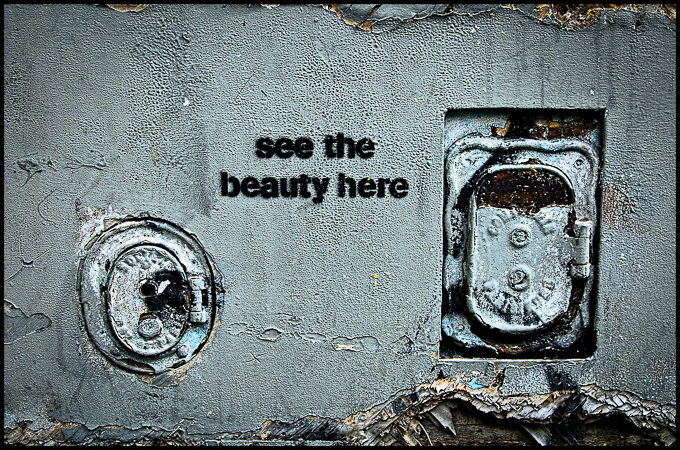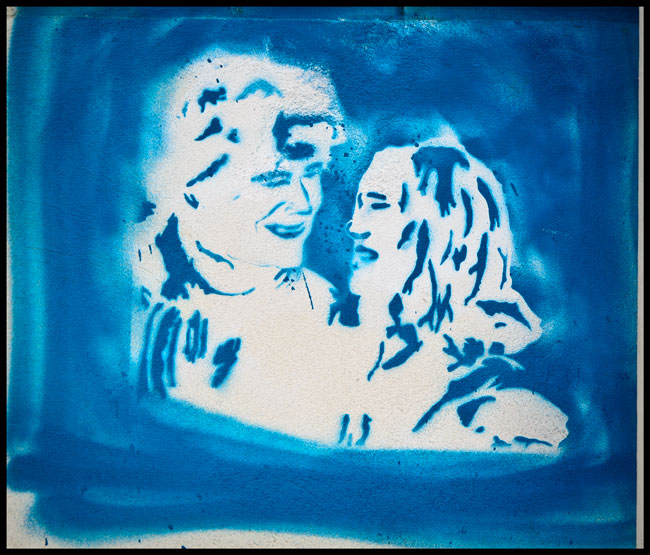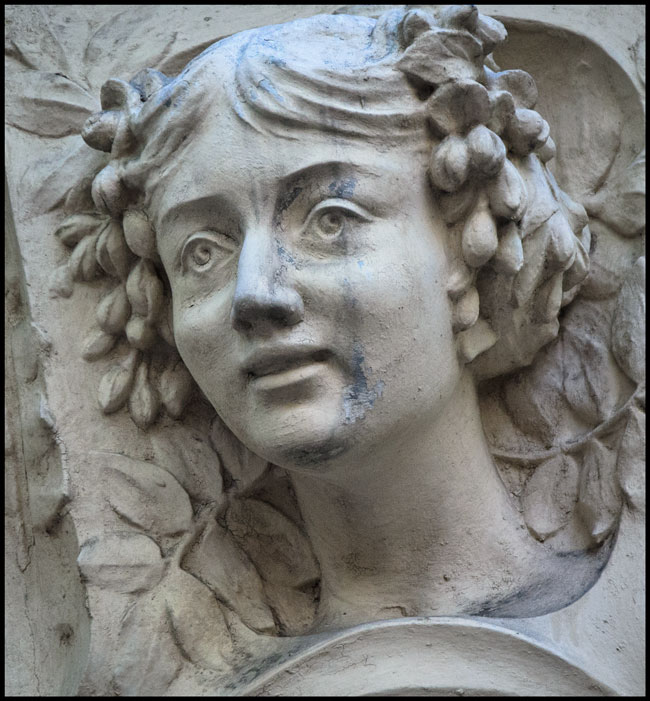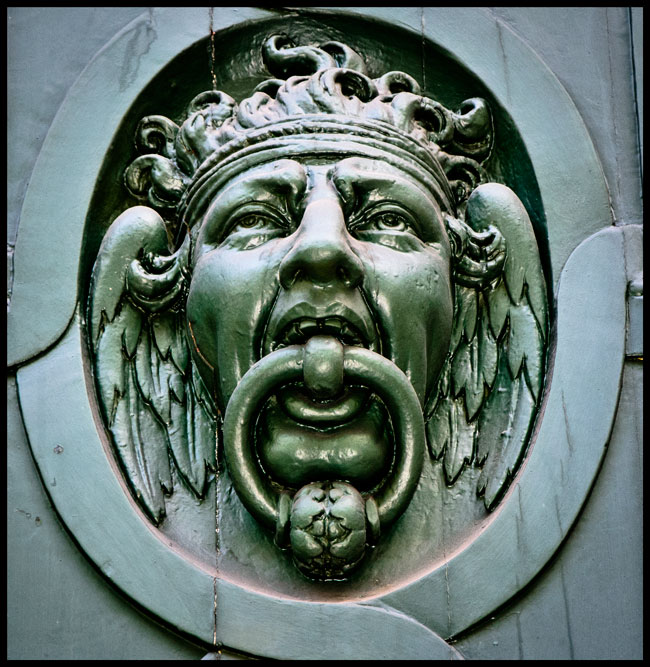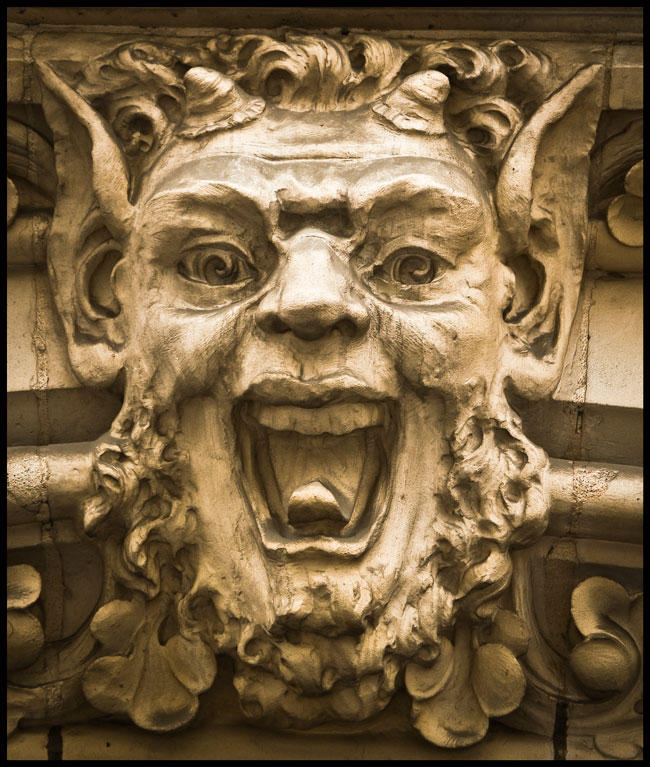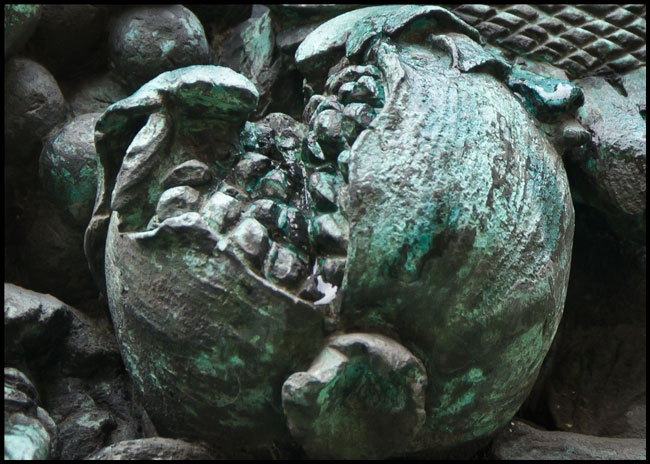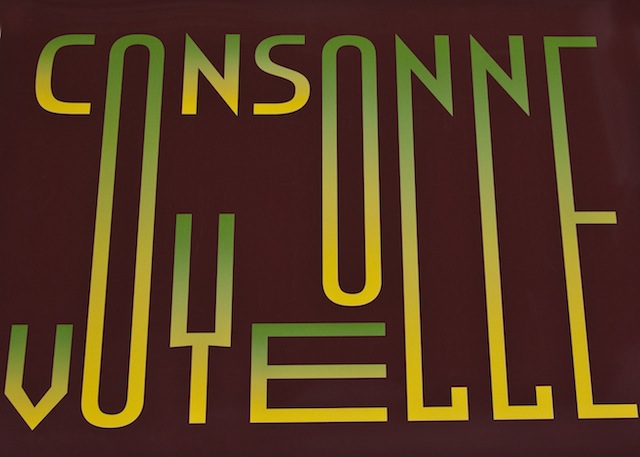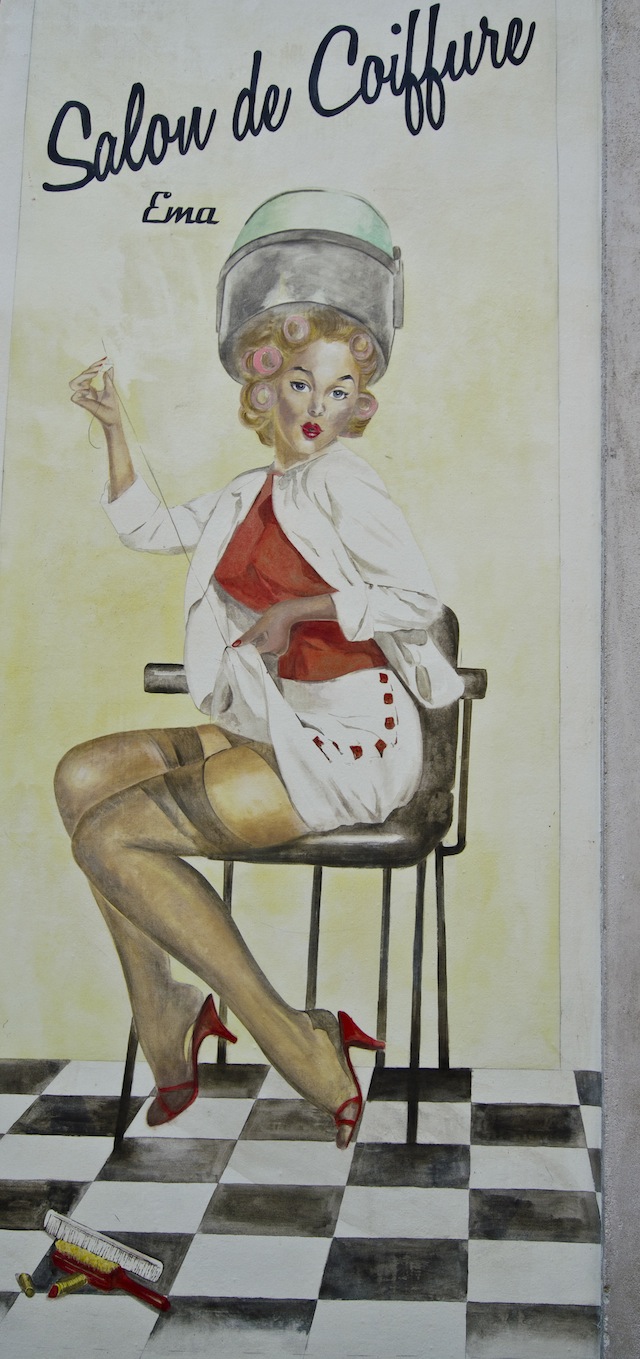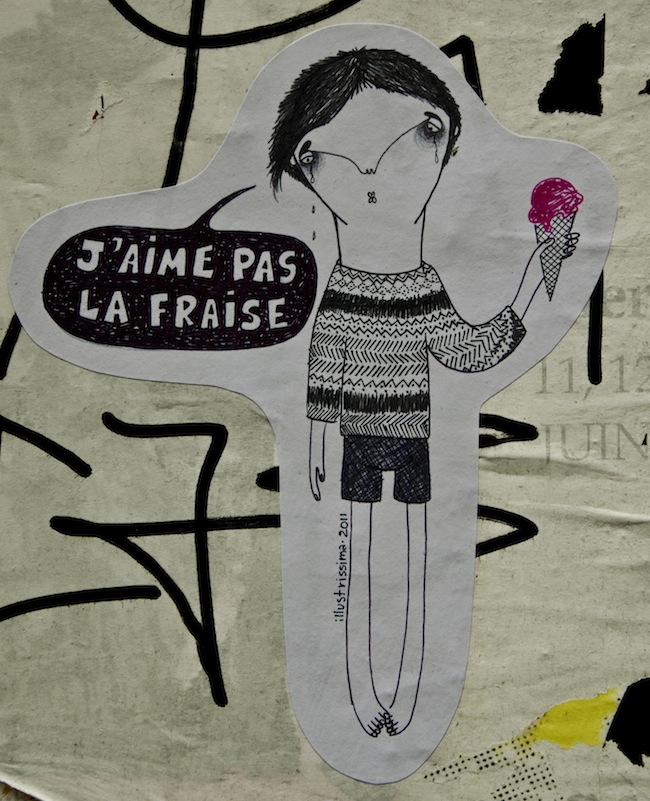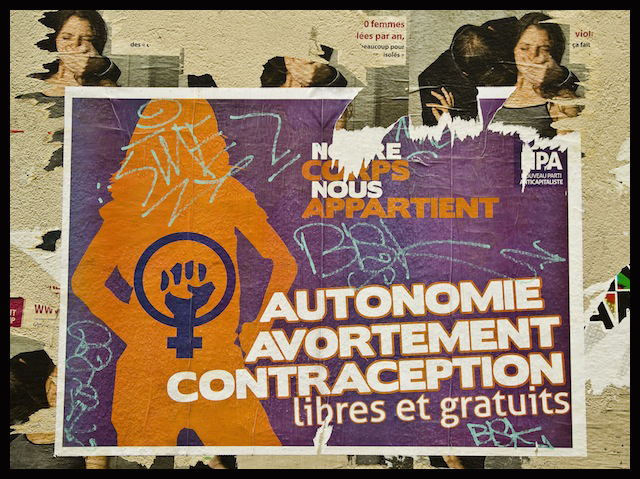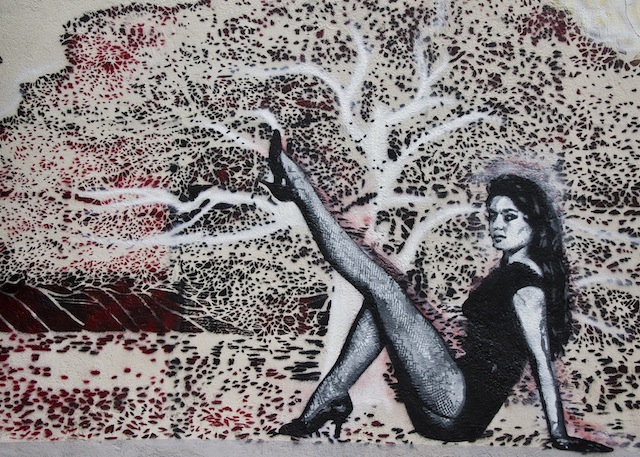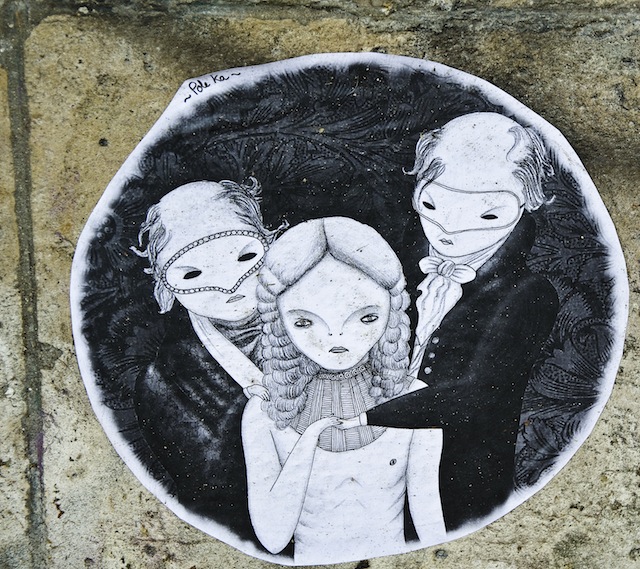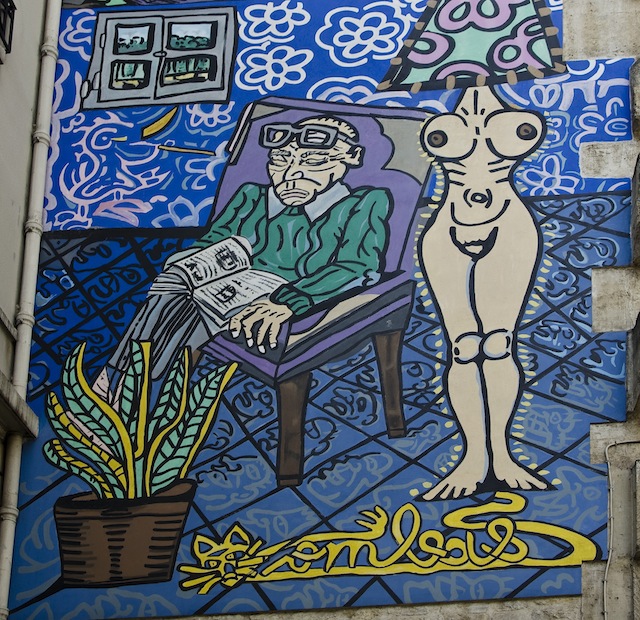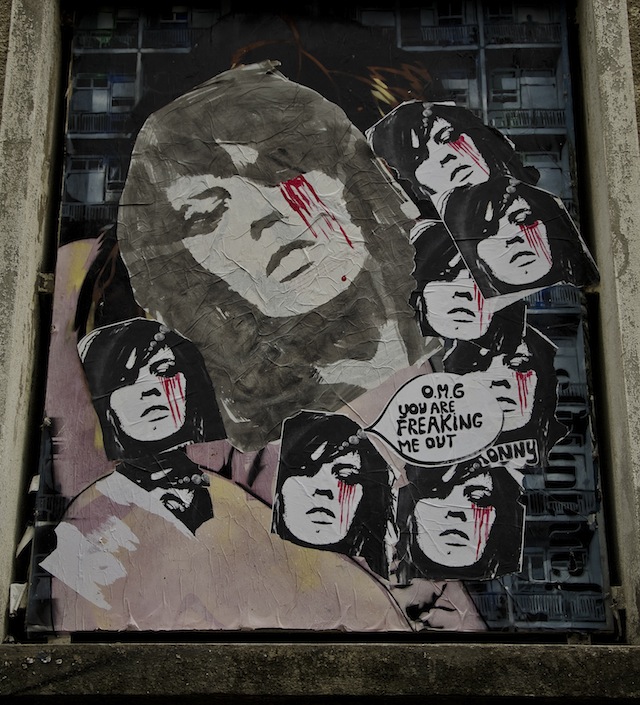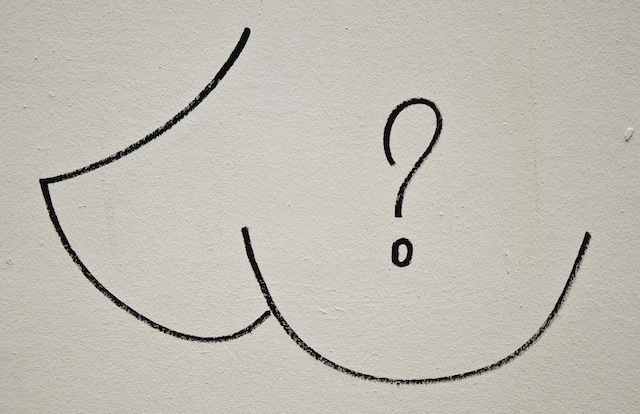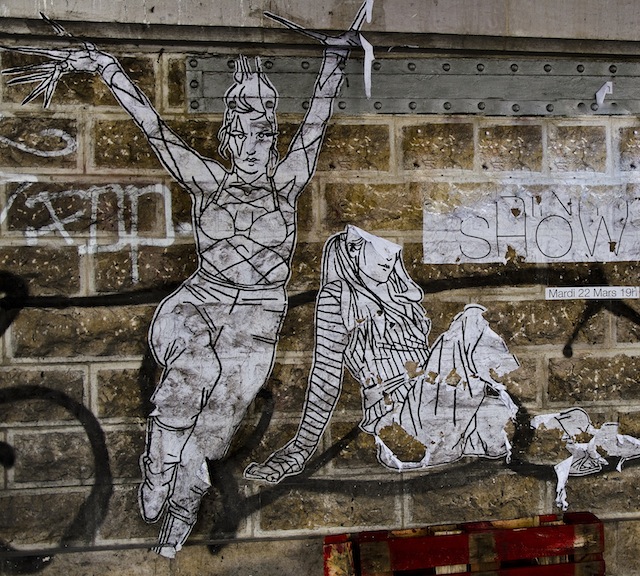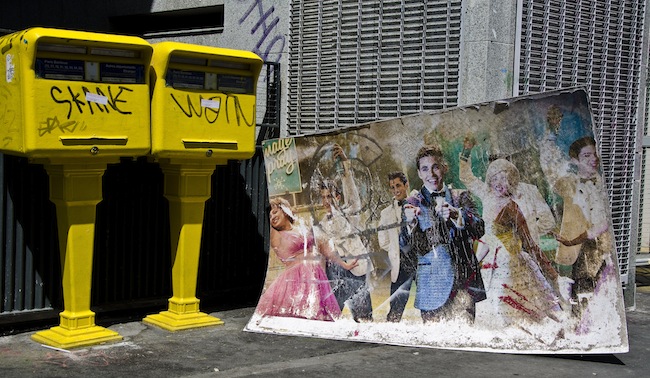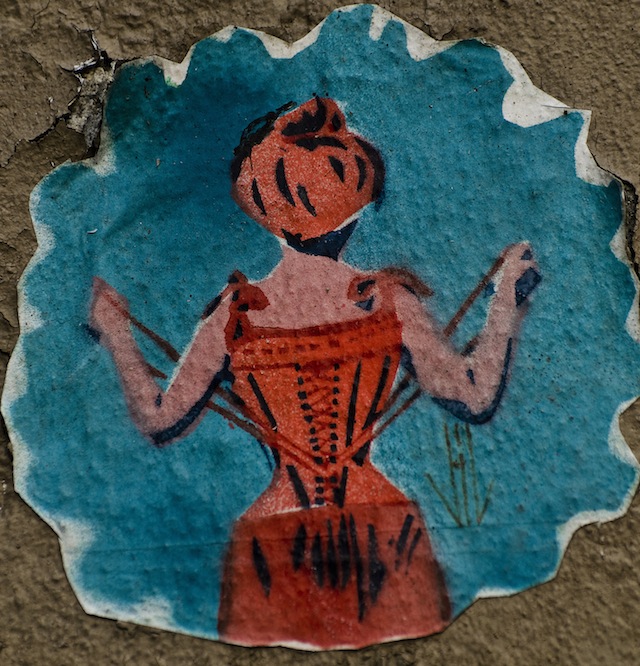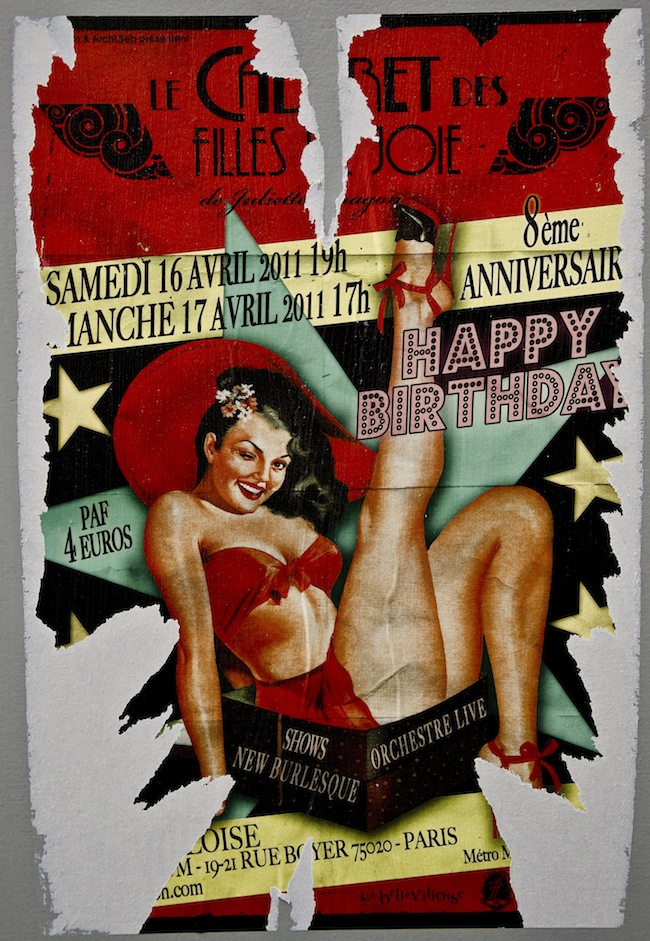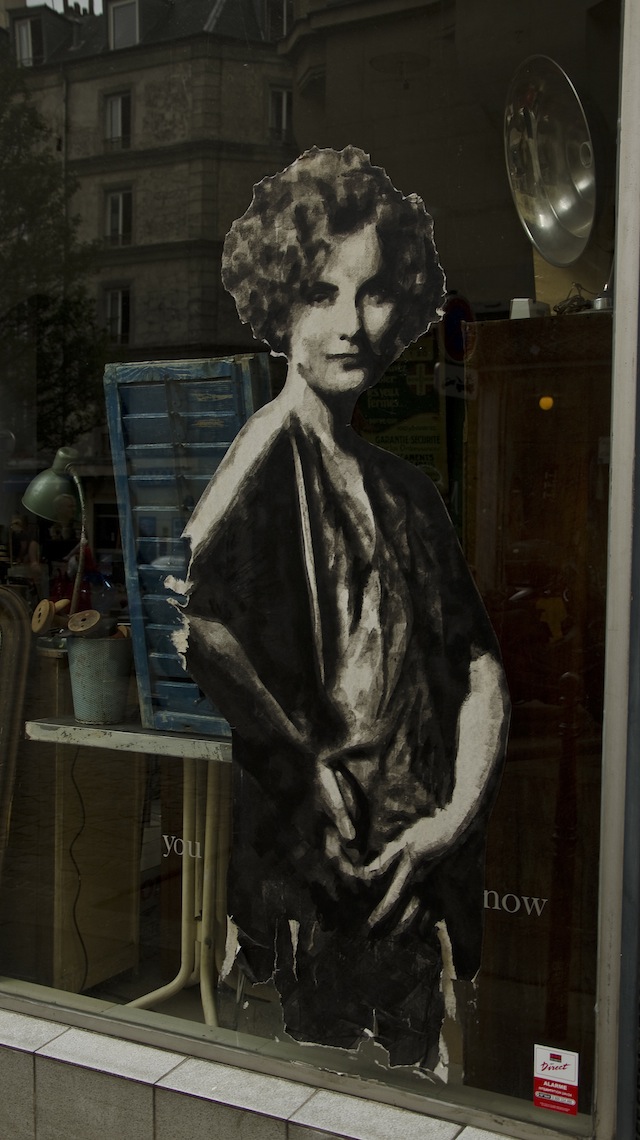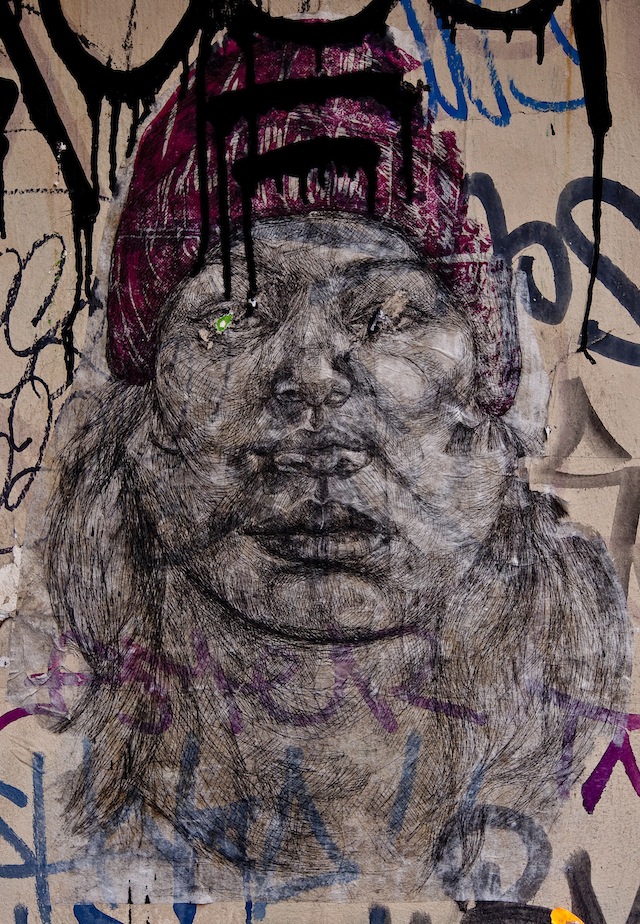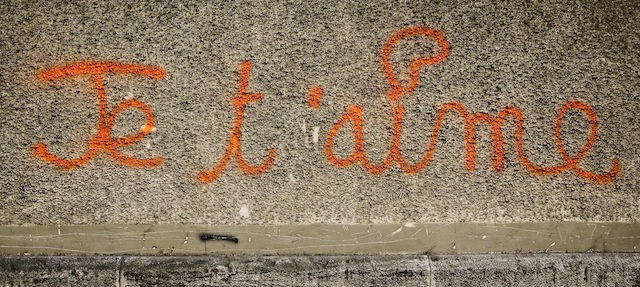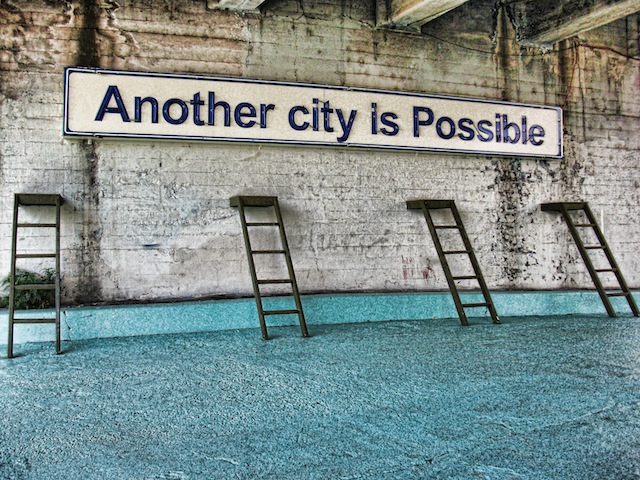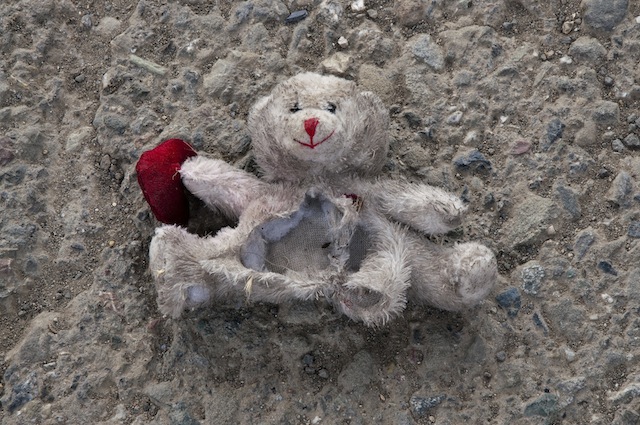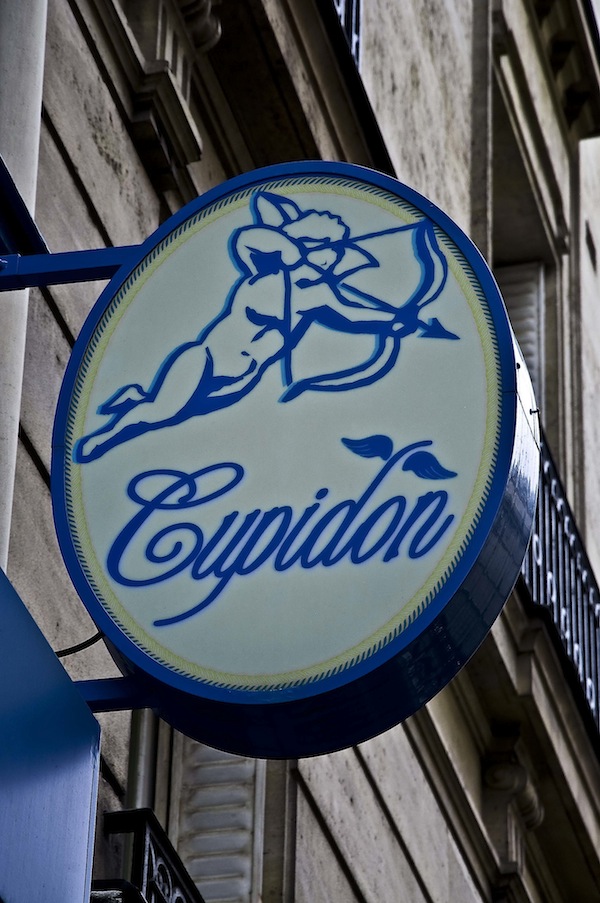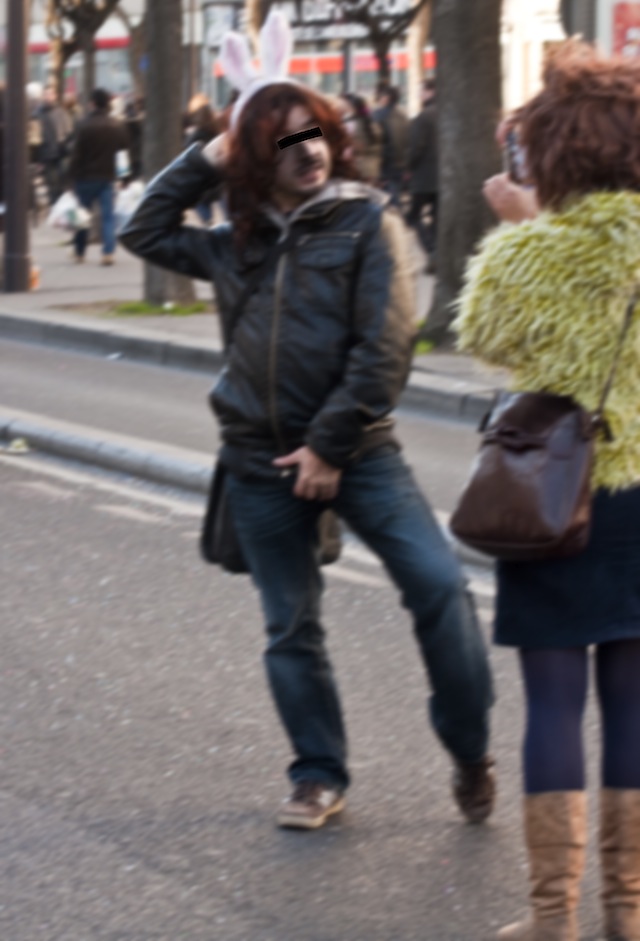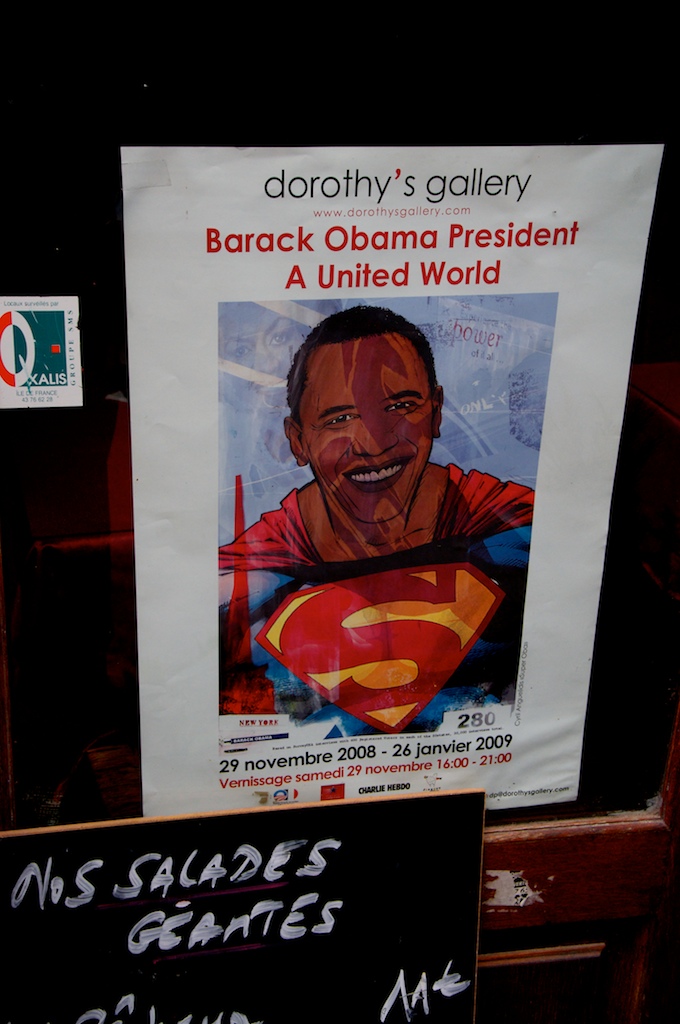Forgiveness
 03.17.2013
03.17.2013
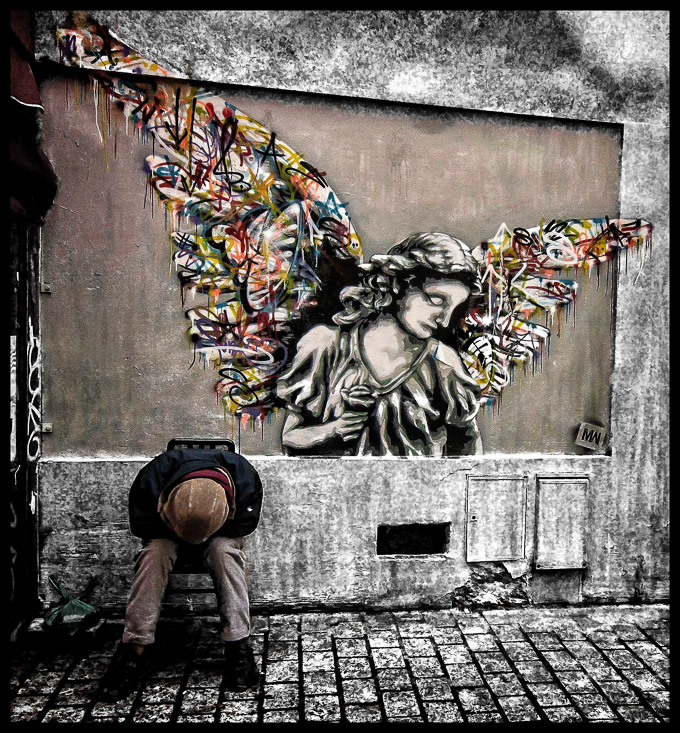 Street Art (c) 2013 Martin Whatson; photo (c) 2013 Richard Beban
Street Art (c) 2013 Martin Whatson; photo (c) 2013 Richard Beban
The strangeness of today. I’ve been thinking about forgiveness lately. Wanting to be in a state of soul without anger, grudges, in which there is no one I need to forgive. Several weeks ago I forgave the last person I needed to forgive.
This story is one I can only tell in full through writing it as a novel. I can’t begin to do it justice here in this small space. I will just say that years ago, in my 20s, he and I were romantically involved. I wanted, needed to end the relationship. He threatened my life, said if I left him, he’d kill me. I resolved to withdraw slowly and date no one else to give him time to accept us ending. And then after six months, I realized I was in real danger.
I disappeared. I flew from Sausalito to my family in Arizona, then traveled around, looking for a place to live, to hide.
I chose Cambridge, Massachusetts. I completed a B.A. there while working at a bookstore, discovered Nietzsche and Lou Andreas-Salome, re-discovered Yeats, Rilke and Pound, and wrote poems. But mostly I lived in a state of fear that he would track me down.
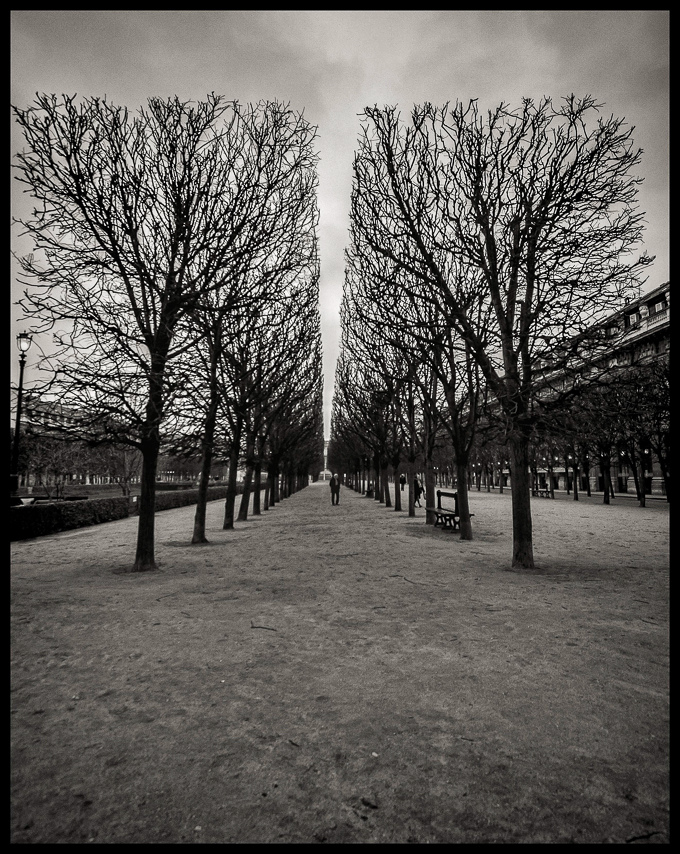
A year and a half later he did. He broke into my family’s home, and found an address book under the telephone, and called me at 3 in the morning the day after the tall ships arrived in Boston harbor for the Bicentennial.
I reached for the card of the FBI agent my father had given me to contact if the need should arise. But then a voice inside me said, Talk to him. And I did. The rest of that night, and many nights afterwards. We made peace.
But the story gets more complicated. Later, in Key West, Florida, he escalated the same kind of obsessive behavior with another woman, and he went to prison for rape.
When he was released after ten years, he returned to the Bay Area. I still had some residual fear of him, did not respond when he tried to get in touch with me.
Today I received an e-mail from his daughter saying he had died last week.
I e-mailed her with empathy and questions.
She told me when he was released from prison, he was wiser, but had many regrets and wasn’t short on saying so. He lived on a small sailboat on the edge of his favorite city, San Francisco. He had been diagnosed with terminal lung cancer and died a week later while his daughter was in town, before he could go to the hospice she had arranged. She described a dinner after he died, attended by many close friends. And in gathering up his clothing to give away, a friendly sea gull sat on the boat near her the whole time, one she thinks her father befriended. She entertained the idea that maybe he was watching over her somehow. When her friends came to pick her up, the gull flew away.
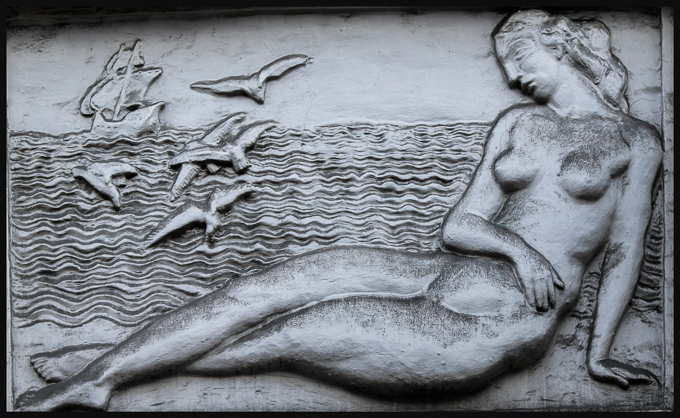
Then I heard the news about the Higgs Boson discovery being confirmed. How fitting that it happened on Albert Einstein’s birthday. I read a quote from a letter he wrote to H. Zangger, March 10, 1914:
Nature shows us only the tail of the lion. But there is no doubt in my mind that the lion belongs with it even if he cannot reveal himself.
I copied Einstein’s words into my Quotes folder and found some Friedrich Nietzsche quotes. I wanted to find one to include in this essay, but which to choose of so many that resonated? This one:
There is always some madness in love. But there is
also always some reason in madness.
Forgiveness has two sides. I have asked two people this year for forgiveness, for things I’d never have held against anyone to begin with, but that I knew they held against me. One sent back a toxic message attributing malice and dark intent to something I had done out of love. Nothing is worse than someone who does not look within at his/her own darkness (of which we all have our share) and projects it out on others. Her e-mail response was cold, harsh and unforgiving, her own nature projected back on me.
But I also received a beautiful e-mail message from a friend in Paris, and another from a poet in Los Angeles, loving tender messages that balanced out the toxic one.
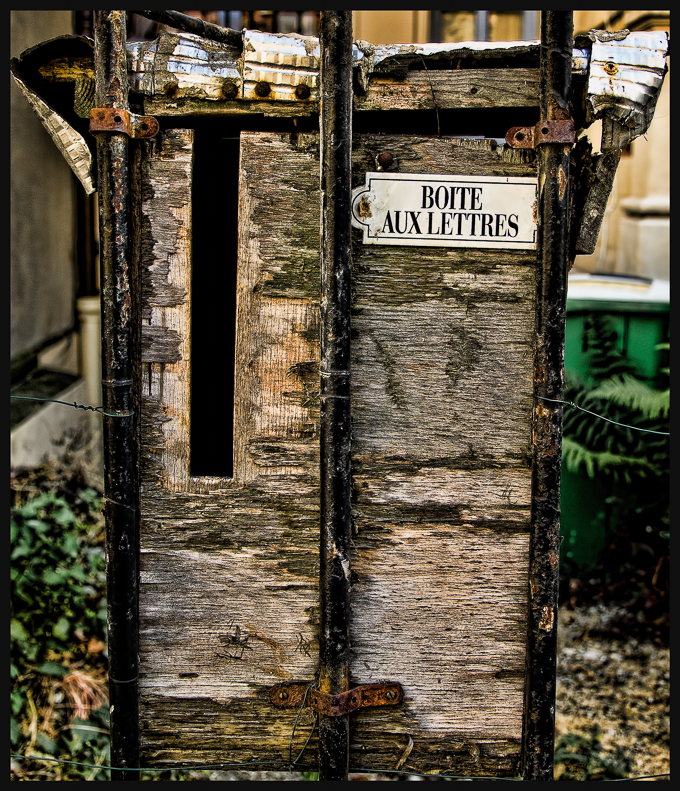
And then this news. I felt relief when I’d learned he had died. Not that he’d died, but relief from the only source of fear I had. After much thought, I wrote him a letter and cried, remembering what was lovable in him. I shed tears for the girl who’d been terrorized, for the man who couldn’t control himself, the man who sat in prison for years. I shed tears for the end of fear. He was the last person I feared.
Of course it had been lung cancer. The lungs, in Chinese medicine, are grief. He died of grief. He had grievous faults, but he also taught me to tell the emotional truth (that is, to balance my tendency to be too kind with truth-telling), and he was warm, funny and far too intense for life on this earth.
Life is so complex, so woven with bright and dark; we are all struggling to get it right.
If I have ever hurt anyone who reads this, please forgive me.
If there is anyone reading this who has someone they need to forgive, please find a way.
I want to live and die with a heart that is light with love, light as a feather, in spite of certain remaining mysteries such as why gravity is so weak and what is the dark matter that is believed to make up a large part of the total mass in the universe, and why cats sleep all day.
